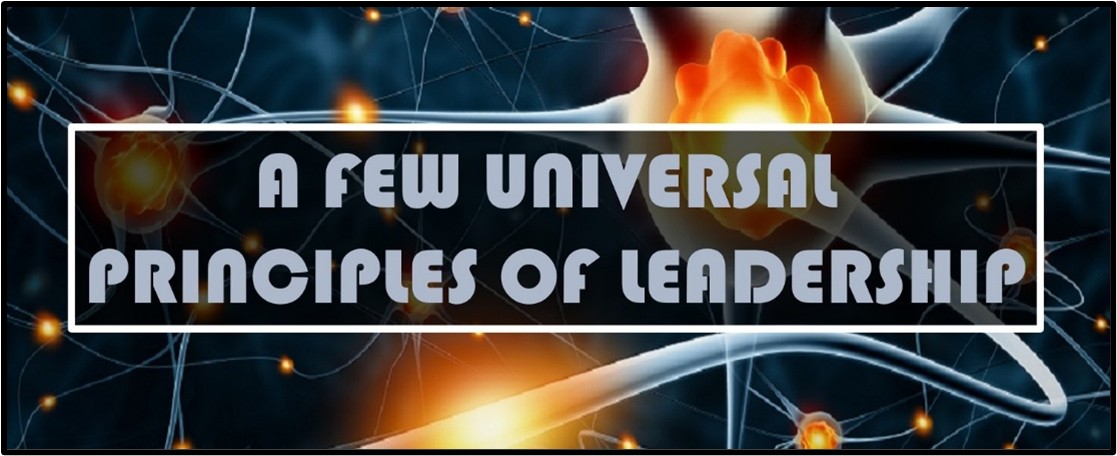A FEW UNIVERSAL PRINCIPLES OF LEADERSHIP - PATRICK TOMLINSON (2025)
Date added: 30/07/25
Download a Free PDF of this Article
I have written this post to share some of the points that I have found key for consideration in Leadership. The PowerPoint (download at the bottom of the page) shares points of view on leadership by Daniel Goleman, Michael Maccoby, James Mattis, Brene Brown, L. David Marquet, Gordon R. Sullivan, Isable Menzies Lyth, Edwin H. Friedman, John Whitwell, Chris Argyris, Peter Senge, John Dewey, Jeff Olson, Elliot Jacques and Stephen Clement, on the following themes.
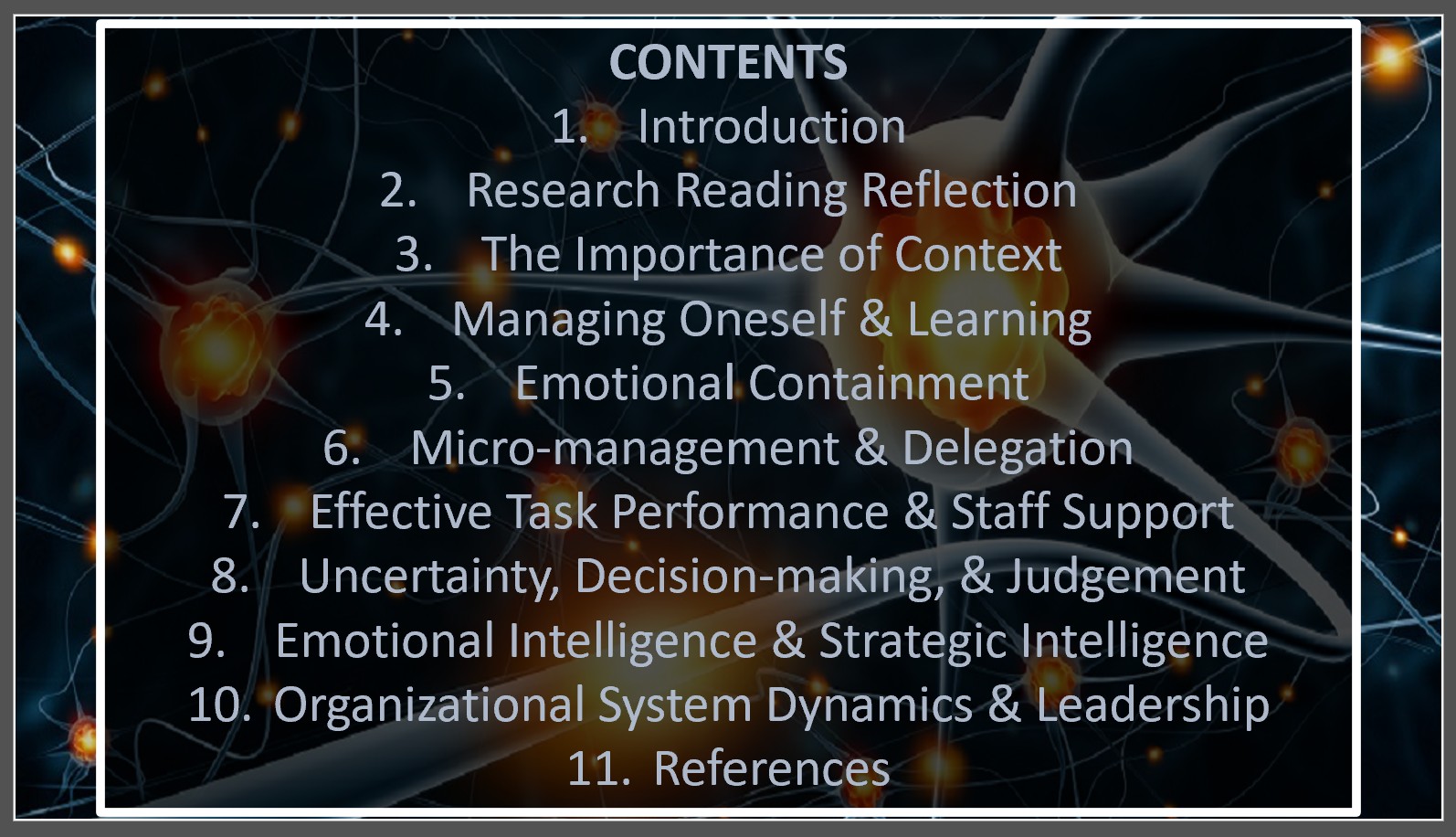
In the 40 years of my work, I have had the privilege to work with many excellent leaders and to learn about the work of others. These days, I provide developmental mentoring and consultation to leaders in a diverse range of settings, in several countries.
One of the significant influences in recent years has been the work of Edwin H. Friedman, who was a rabbi, family therapist, and organizational consultant. He came to the view that all human systems, from the individual to society, or from families to presidents, as he put it, follow universal patterns. I have found that Friedman's work has built upon what I began to learn in the first 15 years of work, where I worked in an organization whose organizational leadership model was highly influenced by consultants from the Tavistock Institute of Human Relations (TIHR), namely, A.K.Rice, Isabel Menzies Lyth, and Eric Miller.
The TIHR developed an approach that has been referred to as an Open Systems model. Issues of primary task, role, authority, boundary management, emotional containment, socio-technical systems, and defences against anxiety were key elements of this approach. This systems approach views the system or organization as being in an ever-changing dynamic relationship with its internal and external environment. The role of leadership is to provide the conditions in which the organization can continue to prosper by achieving its primary task. Friedman saw the leader as a self-differentiated person, being able to function effectively in maintaining the integrity of the organization, whilst not being 'taken over' by systemic anxiety. The self-regulating presence of the leader enables healthy system functioning.
Friedman (1999, pp.2-3) explains his approach,
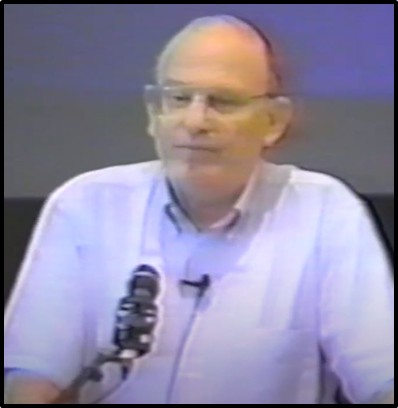 "This book is for parents and presidents. It is also for CEOs and educators, prioresses and coaches, healers and generals, managers and clergy. It is about leadership in the land of the quick fix, about leadership in a society so reactive that it cannot choose leaders who might calm its anxiety. It is about the need for clarity and decisiveness in a civilization that inhibits the development of leaders with clarity and decisiveness. It is for leaders who have questioned the widespread triumphing of data over maturity, technique over stamina, and empathy over personal responsibility. And it is for anyone at all who has become suspicious of the illusions of change - suspicious of the modern fashion wherein solutions, as well as symptoms, burst upon us in every field of endeavor (management, healing, education, parenting) and then disappear as unexpectedly as they had first appeared, only to be supplanted by the fad of another "issue" or cure, sending everyone back to square one.
"This book is for parents and presidents. It is also for CEOs and educators, prioresses and coaches, healers and generals, managers and clergy. It is about leadership in the land of the quick fix, about leadership in a society so reactive that it cannot choose leaders who might calm its anxiety. It is about the need for clarity and decisiveness in a civilization that inhibits the development of leaders with clarity and decisiveness. It is for leaders who have questioned the widespread triumphing of data over maturity, technique over stamina, and empathy over personal responsibility. And it is for anyone at all who has become suspicious of the illusions of change - suspicious of the modern fashion wherein solutions, as well as symptoms, burst upon us in every field of endeavor (management, healing, education, parenting) and then disappear as unexpectedly as they had first appeared, only to be supplanted by the fad of another "issue" or cure, sending everyone back to square one.
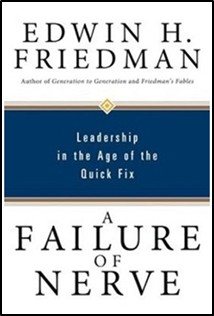 The emphasis here will be on strength, not pathology; on challenge, not comfort; on self-differentiation, not herding for togetherness. This is a difficult perspective to maintain in a “seatbelt society" more oriented toward safety than adventure. This book is not, therefore, for those who prefer peace to progress. It is not for those who mistake another's well-defined stand for coercion. It is not for those who fail to see how, in any family or institution, a perpetual concern for consensus leverages power to the extremists. And it is not for those who lack the nerve to venture out of the calm eye of good feelings and togetherness and weather the storm of protest that inevitably surrounds a leader's self-definition. For, whether we are considering a family, a work system, or an entire nation, the resistance that sabotages a leader's initiative usually has less to do with the “issue” that ensues than with the fact that the leader took initiative."
The emphasis here will be on strength, not pathology; on challenge, not comfort; on self-differentiation, not herding for togetherness. This is a difficult perspective to maintain in a “seatbelt society" more oriented toward safety than adventure. This book is not, therefore, for those who prefer peace to progress. It is not for those who mistake another's well-defined stand for coercion. It is not for those who fail to see how, in any family or institution, a perpetual concern for consensus leverages power to the extremists. And it is not for those who lack the nerve to venture out of the calm eye of good feelings and togetherness and weather the storm of protest that inevitably surrounds a leader's self-definition. For, whether we are considering a family, a work system, or an entire nation, the resistance that sabotages a leader's initiative usually has less to do with the “issue” that ensues than with the fact that the leader took initiative."
The most important thing I have found in all good leadership and the theories that might underpin it, is that it is practical and it works. The work of the TIHR was based on the concept of action research. In other words, thinking about experience, developing a hypothesis, testing it out, and continuing the cycle of learning from experience. Some of the ideas referred to here and in the slides can be transformational when applied appropriately. And that is the challenge of leadership. While there may be universal patterns in systems, knowing what to do at any point in time is a matter of judgement. The issues covered in the slides are often useful to think about. But even with an issue like micro-management, which is usually not helpful, there may be a time when it is needed. Friedman (1994) covers this excellently, with, There is a Time: A Lesson in the Tensions of Leadership (PDF download at the bottom of this page).
Whilst there are patterns, each situation is new and unique. Even the same organization is never the same today as it was yesterday. Human systems need stability but also continual adaptation. A successful leader today is not guaranteed success tomorrow. There are only a few principles of leadership I would say are universally helpful to keep in mind. I would include these,
1. There is no such thing as a leader without a context. Certain approaches might be helpful, but applying anything without understanding the context is at serious risk of not working (see Maccoby, 2015; Jaques and Clement, 1999).
2. Leadership is rarely the role of one person. There is usually a leadership group. It is unhelpful to talk as if all the required leadership qualities must be possessed by ‘the leader’. This is both unhelpful and unnecessary. For example, it is often said that a leader must be emotionally intelligent (see Goleman, 1995, 1988). Whilst emotional intelligence may usually be helpful, it may not always be the priority. Maccoby argues (2007, p.156) that strategic intelligence consists, “… five interrelated concepts or competencies – foresight, systems thinking, visioning, motivating, and partnering”. He argues (p.150) that such leaders, “… have built highly successful and sustained businesses, (and) you’ll find that they score very low on emotional intelligence”. He says that these leaders are often not especially self-aware, reflective, sensitive, or empathetic. He continues (2007, p.154), “… that the model of an empathetic leader is not necessarily suited to head up a competitive, change-orientated industry”.
It would be more helpful to say that the leadership of a certain context requires a variety of qualities. So, if the person who is ultimately at ‘the top’ has strong qualities relevant to the task, but is lacking in other qualities that may also be needed, these can be provided from within the leadership group. This can work well as long as the group recognizes the value of the different qualities and styles, and can work together well. Leaders are usually surrounded by leaders and also report to another leader.
3. Avoiding silos and broadening perspective is helpful. As we tend to become absorbed by what is closest to us, there is a natural tendency to work and live in silos. For example, the silo of a department in an organization, the silo of one industry, or a profession, and cultural societal silos.
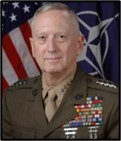 James Mattis (2003), ex-USA Secretary of Defence & Marine Corps four-star General, talks about the value of reading and learning from the experience of others,
James Mattis (2003), ex-USA Secretary of Defence & Marine Corps four-star General, talks about the value of reading and learning from the experience of others,
The problem with being too busy to read is that you learn by experience (or by your men’s experience), i.e., the hard way. By reading, you learn through others’ experiences, generally a better way to do business, especially in our line of work where the consequences of incompetence are so final for young men.
While the development of highly specialized knowledge and experience is needed, we can also deprive ourselves of the value that a wider lens can offer. Edmondson, Jang, and Casciaro (2019) have written about what they call cross-silo leadership. They argue that it is difficult to take the perspective of others who have dissimilar roles and skills. However, they believe that when this happens, there are significant benefits to the organization.
As a rule, cross-functional teams give people across silos a chance to identify various kinds of expertise within their organization, map how they’re connected or disconnected, and see how the internal knowledge network can be linked to enable valuable collaboration.
4. Reflective practice and critical thinking are important. One of the benefits of ‘cross-silo’ thinking is that it encourages people to ask questions and to be curious to understand the work and perspective of others. If we are more tuned in to the views and concerns of others, we may make better decisions because we are more aware of the potential consequences outside of our ‘silo’. These qualities are a key part of reflective practice and essential in effective and innovative organizations. As Edmondson et al. state,
Today the most promising innovation and business opportunities require collaboration among functions, offices, and organizations. To realize them, companies must break down silos and get people working together across boundaries.
Within this, reflection and critical thinking is always important. It is hard to imagine any style of leadership or context where leadership does not benefit from this. Reflective practice is a great example of how so many different fields of work have contributed to its development. For example, Tomlinson and Moore (2022) state,
Over the last hundreds and thousands of years, the process of reflection and the lessons learned have been captured in many fields, including; Anthropology, Religion (many scriptures and religious books are reflective), Philosophy, Physics (Bohm, 1965; Heisenberg, 1971), Psychology/Psychoanalysis/Psychotherapy, Education, Business Theory and Leadership, Military (Johnson, 2020), Medicine/Nursing.
In the same way, this short post aims to provide; some key issues to think about, from a small but significant group of contributors to the field of leadership in many fields, and a few potentially helpful resources.
References
Bohm, D. (1965) The Special Theory of Relativity, New York: W. A. Benjamin
Edmondson, A.C., Jang, S. and Casciaro, T. (2019) Cross-Silo Leadership, in, Harvard Business Review
https://hbr.org/2019/05/cross-silo-leadership
Friedman, E.H. (1994) There is a Time: A lesson in the Tensions of Leadership, Leadership Through Self-Differentiation, There is a Time’ (min. 136:55)
https://www.youtube.com/watch?v=nM-sUuQUCac&t=4549s
Friedman, E.H. (1999) A Failure of Nerve: Leadership in the Age of the Quick Fix, New York: Church Publishing, Inc.
Goleman, D. (1995) Emotional intelligence, New York: Bantam Books, Inc.
Goleman, D. (1998) Working with Emotional Intelligence, Bantam Books,
https://archive.nytimes.com/www.nytimes.com/books/first/g/goleman-working.html
Heisenberg, W. (1971) Physics and Beyond: Encounters and Conversations, New York, Evanston, and London: Harper & Row, Publishers
Jaques, E. and Clement, S.D. (1991) Executive Leadership: A Practical Guide to Managing Complexity, Basil Blackwell: Cason Hall and Co. Publishers
Johnson, O.E. (2020) Creating Space to Think: The What, Why, and How of Deliberate Reflection
for Effective Leadership, in, The Journal of Character & Leadership Development, Winter 2020,
United States Naval War College
Maccoby, M. (2007) Narcissistic Leaders: Who Succeeds and Who Fails, Boston, Massachusetts: Harvard Business School Press
Maccoby, M. (2015) World Affairs Councils of America, 2015 Annual Conference, Washington DC, November 11th – Keynote Discussion: Developing Global Leadership
https://www.youtube.com/watch?v=LL7kvKKO-9Y&t=2769s
Mattis, J. (2003) General James Mattis, on the Matter of Professional Military Reading,
https://thearmyleader.co.uk/mattis-professional-military-reading/
Tomlinson, P. and Moore, H. (2022, revised 2025) Reflective Practice: Perspectives, Silos, Resistance, and Benefits,
Files
- Download a Free PDF of this Article
- Download PDF of PowerPoint - A Few Universal Principles of Leadership
- Download PowerPoint - There is a Time: A Lesson in the Tensions of Leadeship
- Download - 5.4 Reflective Practice Perspectives Silos Resistance and Benefits (Patrick Tomlinson and
Please leave a comment
Next Steps - If you have a question please use the button below. If you would like to find out more
or discuss a particular requirement with Patrick, please book a free exploratory meeting
Ask a question or
Book a free meeting














